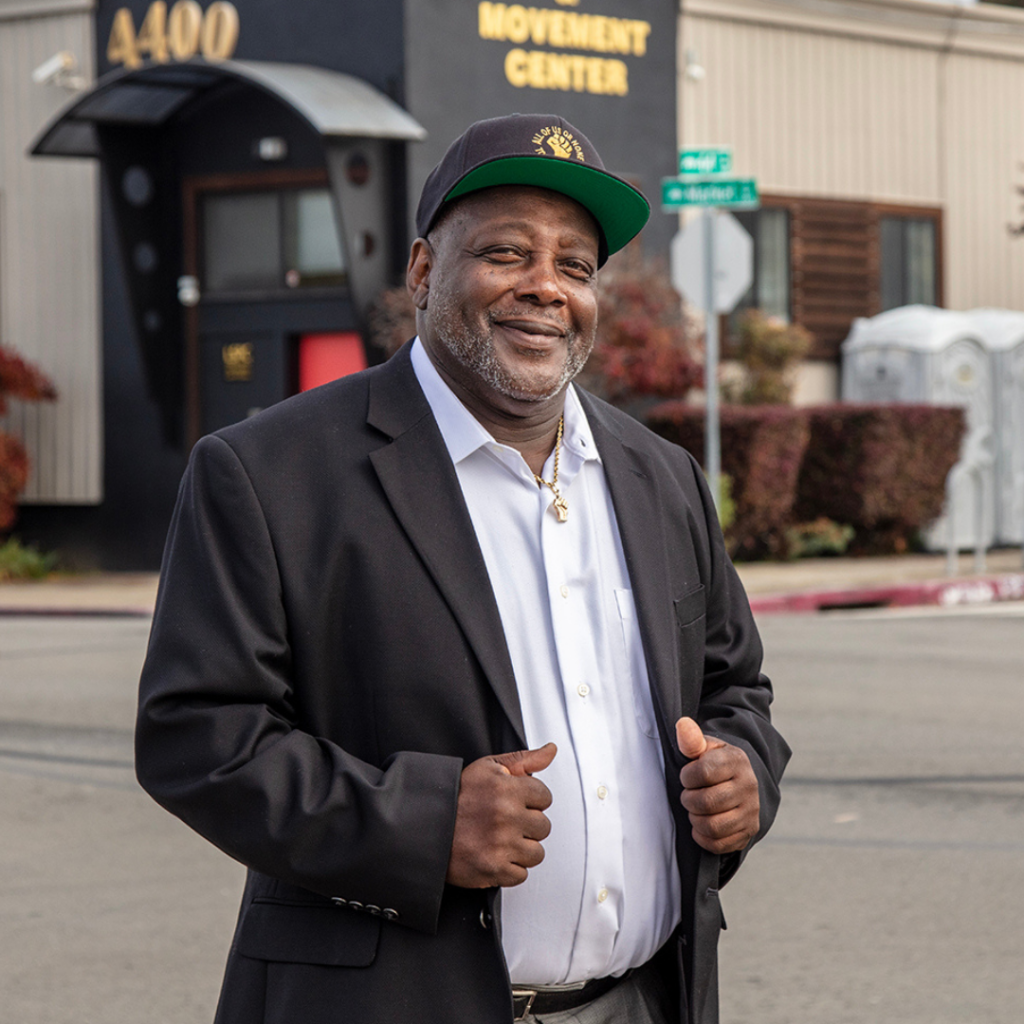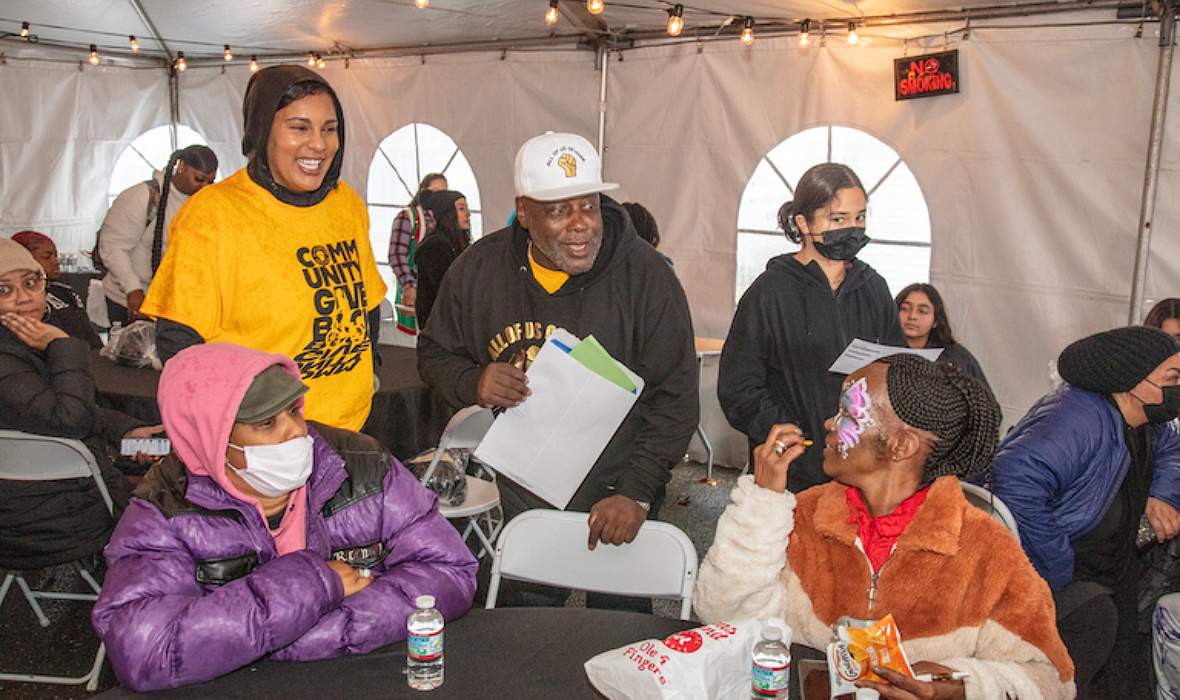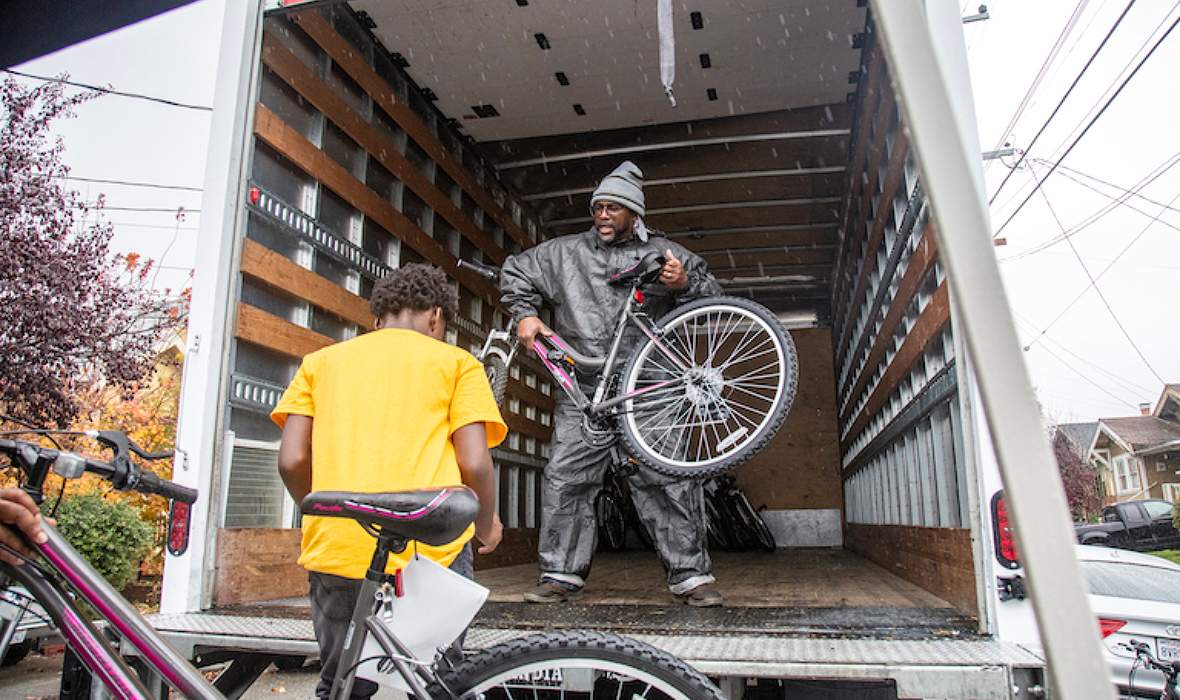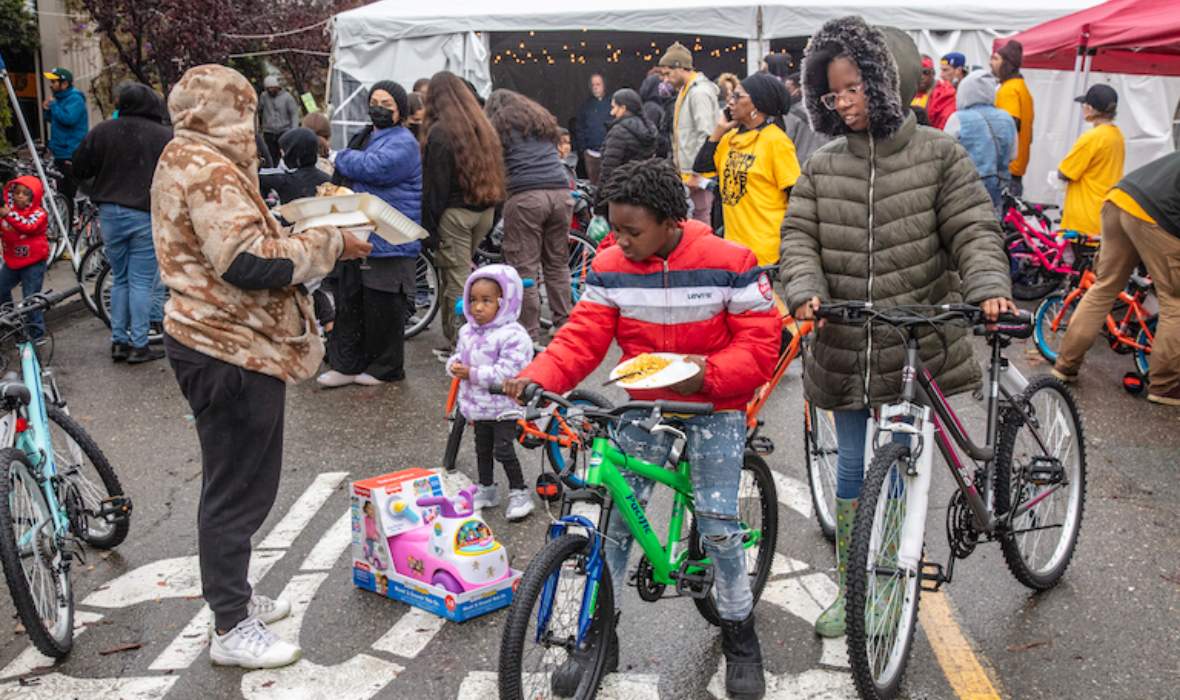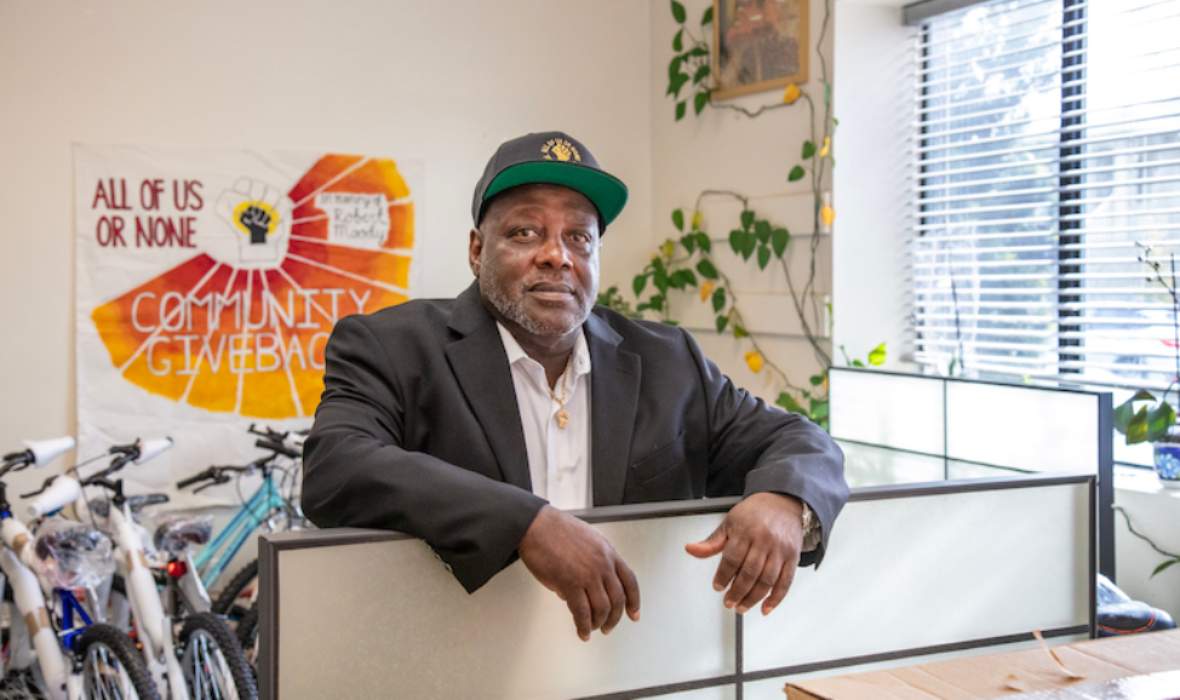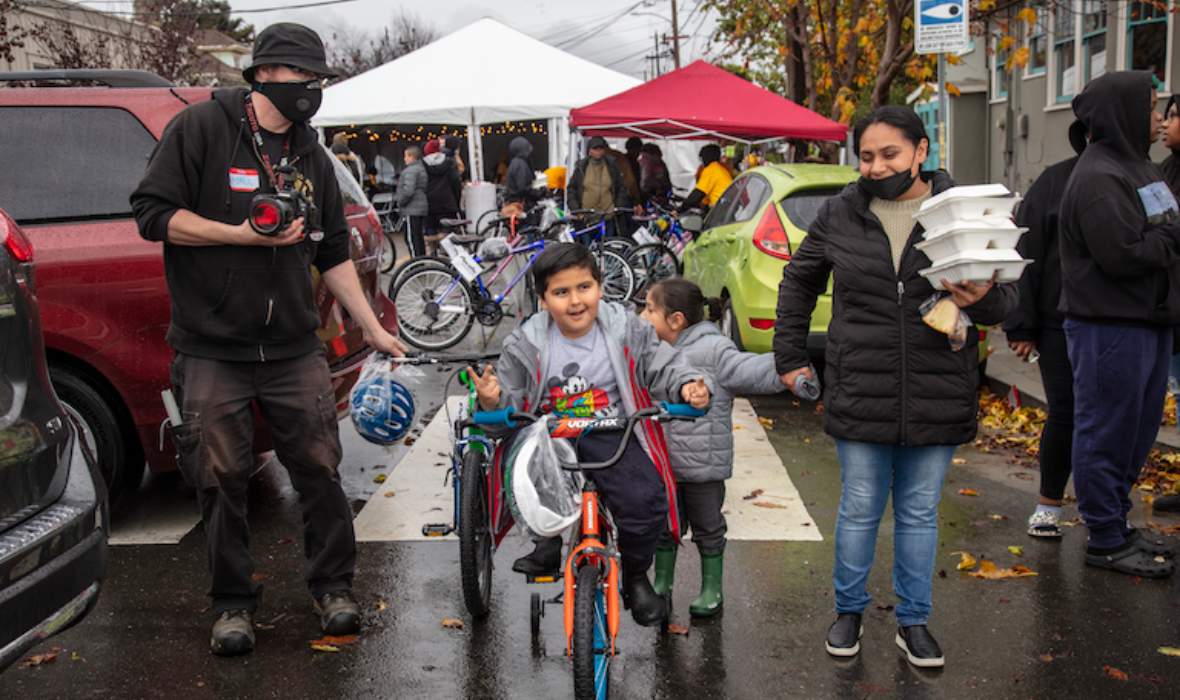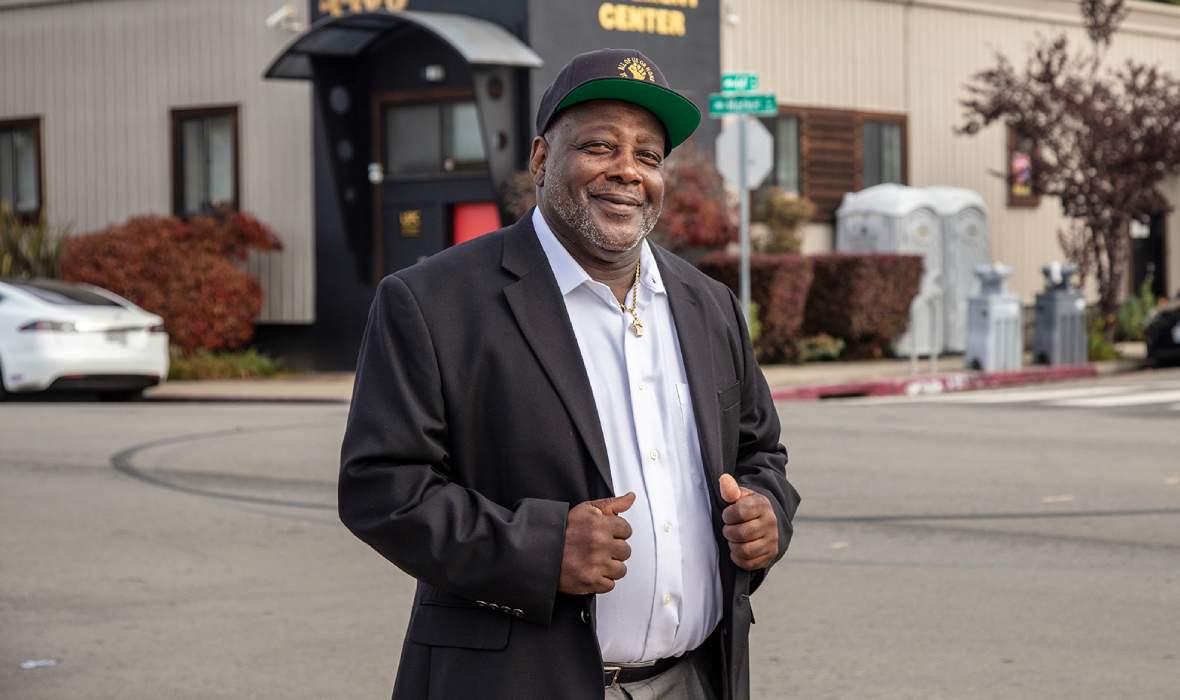Fighting for dignity, opportunity, and freedom for people affected by incarceration
Overview
Dorsey Nunn has experienced and witnessed firsthand how completing a prison sentence does not guarantee the end of restrictions to freedom, especially for people of color and low-wage workers. For the one in five Californians who have a criminal record, finding employment and housing can be a struggle. These barriers are often made worse by racial discrimination and can significantly impact a person’s ability to get back on their feet, build community, and integrate into society. Nunn has manifested the weight of these injustices into decades of advocacy for people during and after incarceration, as well as their families. Since 2011, he has led Legal Services for Prisoners with Children (LSPC), which aims to improve conditions for those who are incarcerated and enhance opportunities for people to rebuild their lives after release.
Nunn founded its policy advocacy arm, All of Us Or None (AOUON) in 2003. AOUON works as a vehicle for people who have been incarcerated to shape policies that affect them, fueling a civil rights movement for this constituency. By centering the voices and lived experiences of system-impacted people, LSPC and AOUON’s organizing and advocacy has successfully changed the lives of hundreds of thousands of Californians by ending long-term solitary confinements, improving conditions in correctional facilities, expanding access to housing and employment, and restoring voting rights to people on parole and probation.
Freedom doesn’t start when you walk out the gate, it starts when you begin putting your life back together.
Primary Regions Served
Challenge
- Of the nearly 100,000 people who are incarcerated in the California’s prison system, Black and Latino men — who face systemic racism and fewer opportunities to advance economically — are vastly overrepresented compared to the population of the state.[1], [2]
- While incarcerated, all able-bodied people are required by the State to work an average of 32 hours per week, usually for eight to 37 cents per hour. [3] This involuntary servitude as punishment for a crime is authorized by The California Constitution.
- Upon release, people with histories of incarceration are often disqualified from housing and, if taken in by a loved one who receives subsidized housing, they often jeopardize their loved one’s subsidy.
- Job seekers with felonies are often denied employment, limiting their ability to provide stability for themselves and their dependents and, potentially, perpetuating the trauma of incarceration over generations. Job applications often include a question about felony convictions, immediately disqualifying applicants upon checking the box.
Innovation
- Nunn empowers people who have been incarcerated to shape policies that affect them. AOUON Chapters develop and advance local policy goals and participate in statewide advocacy efforts through “Peace and Justice Community” summits at which legislators are in the role of listener, rather than the reverse.
- AOUON inspired “Ban the Box,” an advocacy campaign to restrict employers from including questions about prior convictions on job applications. Members argue that employers should choose the best candidates based on job skills and qualifications.
- To change the narrative about people who have been incarcerated, Nunn recently partnered with the National Park Service to develop an exhibit at Alcatraz Island that will highlight the stories of AOUON members to roughly one million visitors annually.
Impact
- AOUON has 30 chapters nationally, including 10 in California. To date, AOUON “Peace and Justice Community” summits have helped train and coordinate nearly 2,000 Californians to engage directly with policymakers.
- The Ban the Box campaign’s first success was with the City of San Francisco in 2006, and Nunn guided replication leading to 150 cities and 37 states banning the question from public employment applications. Following this success, Nunn is expanding the campaign to advocate for banning questions about convictions on housing applications, with initial victories in Oakland and Berkeley.
- Nunn worked with AOUON members to expand their voting rights, which they achieved through a state initiative campaign and a class action lawsuit. These combined efforts restored voting rights to the 115,000 Californians on parole or under community supervision post-incarceration.
- Nunn’s strategy of centering the perspective of people who have been incarcerated, and the impact on their families, has influenced many decision-makers to think more about the human consequences of policies.
Opportunity
- Nunn’s top priority is eliminating the provision in California’s Constitution that authorizes involuntary servitude as punishment for a crime. Stressing the moral imperative to end slavery, Nunn makes the case that people who are incarcerated should have the opportunity to save money and rebuild their lives upon release.
- AOUON will continue to expand access to housing and supporting older prisoners who are increasingly, and often unexpectedly, being released from incarceration.
- Building upon his initial Ban the Box campaign and advances to housing policies, Nunn plans to advance policies to prohibit questions about convictions on rental applications.
The written profile and video reflect the work of the leader(s) the year they received a Leadership Award. Please contact the leader(s) for current information.
